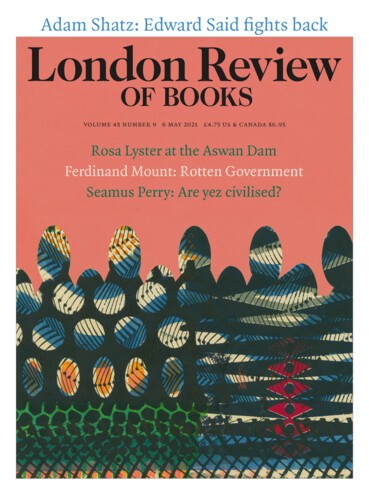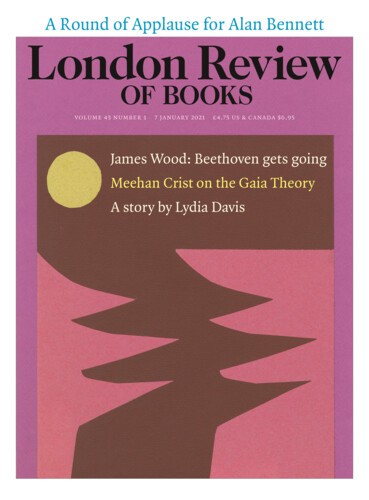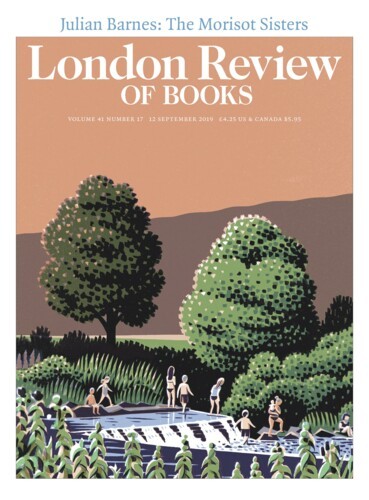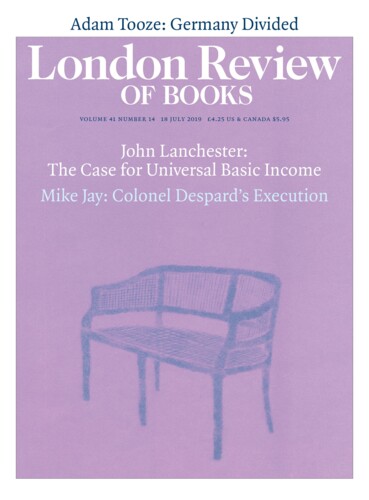We did and we didn’t: Are yez civilised?
Seamus Perry, 6 May 2021
When the posthumous Collected Poems of W.H. Auden appeared in 1976, Seamus Heaney wrote an appreciative review for the magazine Hibernia in which he told
a story about a Ballymena listener calling the BBC one morning in 1969, after the Northern Ireland news had given a lot of coverage to speeches by civil rights leaders the previous evening. ‘Tell us this,’ he said, ‘are...





